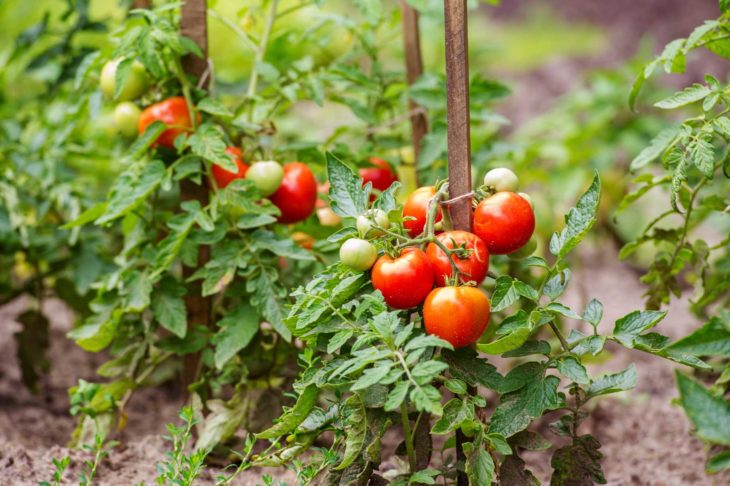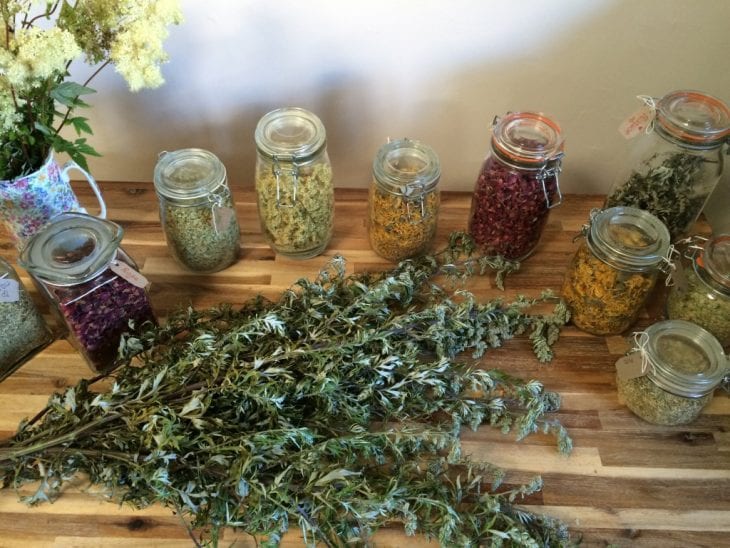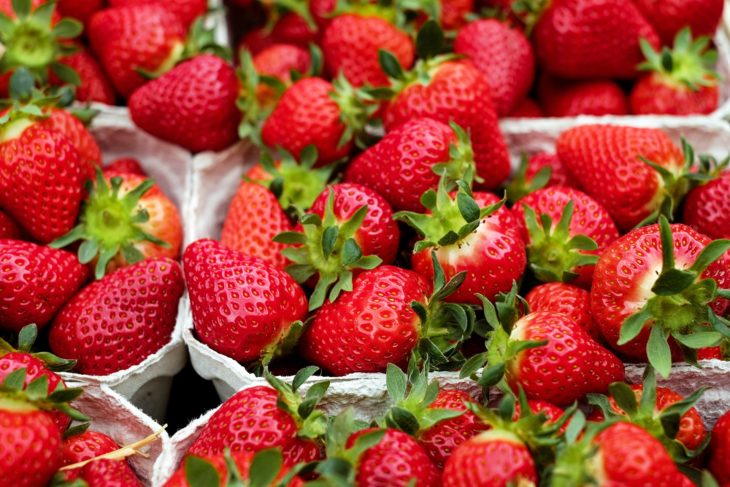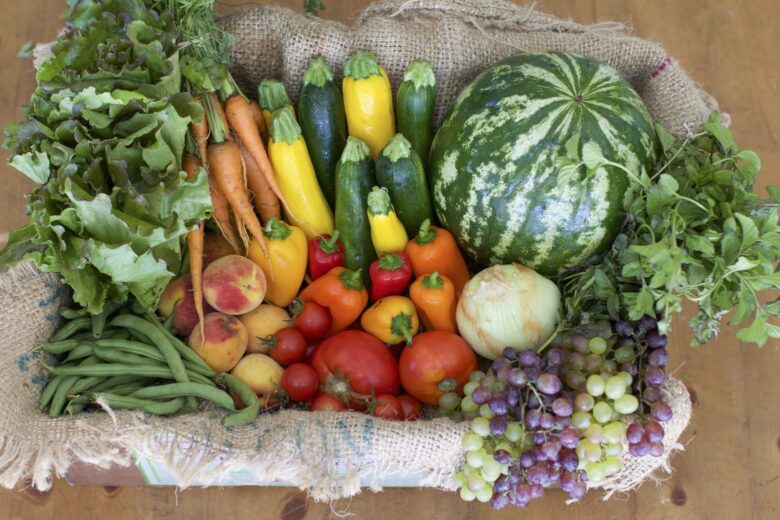Growing your own organic fruits and vegetables at home is a great way to save money, reduce your carbon footprint, and ensure you get the freshest produce possible. But before you dive headfirst into this rewarding hobby, it’s essential to understand the different types of fruits and vegetables available for home gardening. In this blog post, Vikki Gerrard La Crosse, WI, discusses some of the most popular organic fruits and vegetables you can easily grow in your backyard or balcony.
Contents
Tomatoes

Source: medium.com
Tomatoes are perhaps the most popular vegetable to grow at home. They come in wide varieties, including cherry tomatoes, heirloom tomatoes, beefsteak tomatoes, and more. Tomatoes are easy to grow because they don’t require a lot of space or maintenance. They need plenty of sunlight and water; you’ll harvest delicious tomatoes soon.
Peppers
Peppers come in all shapes, sizes, and colors. From mild bell peppers to spicy jalapenos and habaneros, peppers are an excellent choice for any home gardener. Peppers thrive in warm temperatures, so ensure that if you live in a cooler climate, you provide them with extra warmth, such as a greenhouse or hot-bed system.
Lettuce
Lettuce is one of the easiest vegetables to grow at home because it grows quickly and requires minimal effort from the gardener. Lettuce has numerous varieties, so that you can experiment with different flavors, from crispy romaine to buttery bibb lettuce.
Herbs

Source: hedgerowherbs.co.uk
Herbs are a great addition to any garden because they not only add flavor to dishes but also have medicinal properties that can be used for healing purposes or as an all-natural remedy for common ailments such as colds or headaches. Popular herbs include oregano, thyme, sage, rosemary, basil, chamomile, mint, lavender, and more.
Carrots
Carrots are another great option for home gardeners because they take up very little space while providing plenty of nutrition. Carrots can be planted directly into the soil or grown in containers, perfect for small spaces like balconies or patios. Plus, they taste delicious when freshly picked.
Squash
Squash is a versatile vegetable with wide varieties, including spaghetti, zucchini, acorn, and more. They thrive best in warm climates but also do well in cooler climates if provided with enough warmth through greenhouse systems or other methods such as mulching or row covers during winter.
Strawberries

Source: medium.com
Strawberries are a favorite among many gardeners due to their sweet flavor and ease of cultivation compared to other fruits like apples or oranges, which require more space and equipment for successful growth indoors/outdoors, depending on climate conditions. Strawberries can be planted directly into soil beds or grown in containers, making them perfect for small spaces like balconies or patios. Plus, they taste delicious when freshly picked.
The Benefits Of Growing Your Organic Fruits and Vegetables
Increased Access To Nutrient-Rich Foods
Growing your organic fruits and vegetables gives you access to nutrient-rich foods free from pesticides, herbicides, and other potentially harmful chemicals. These toxins can often be found in conventional produce due to their reliance on chemical fertilizers and insecticides. Eating organic foods has been linked to many health benefits, including improved immune system function, reduced inflammation, improved digestion, lower risk of cancer, and better overall health.

Source: harvest2u.com
Reduced Environmental Impact
Organic farming is more sustainable than conventional methods, relying on natural methods such as crop rotation and composting rather than chemical fertilizers or pesticides. This means that there is no need for synthetic fertilizers or other toxic chemicals, which can lead to soil erosion, water pollution, air pollution, and other environmental issues. As a result of this reduced environmental impact, organic farming has become increasingly popular in recent years.
Financial Benefits
Growing your organic fruits and vegetables can also help save you money in the long run. You can reduce your grocery bill significantly over time by eliminating the need for costly store-bought produce or expensive delivery services like Instacart or Amazon Fresh. Additionally, if you choose to sell any of the produce that you grow yourself at a local farmers market or online platforms like Etsy or eBay, then there is potential for further financial savings as well.
Stress Relief & Mental Health Benefits
Growing organic fruits and vegetables can also provide numerous mental health benefits, such as stress relief and improved moods, due to the activity’s calming effect on the body. Gardening is an excellent form of physical activity that helps increase endorphins (the “happy hormone”) while providing an opportunity for mindfulness practices such as meditation or mindful eating, which have been linked to improved mental well-being. Plus, it gives us something positive to focus on during these uncertain times.

Source: plantsforallseasons.com
Tips for Growing Organic Fruits and Vegetables Successfully
- Start with quality seeds or seedlings: Make sure to buy high-quality seeds or seedlings from a reputable supplier to ensure the best chance of success in your organic garden.
- Use organic soil and compost: Organic fruits and vegetables require nutrient-rich soil to grow, so use organic soil and compost to provide them with the necessary nutrients.
- Rotate crops: Crop rotation is an essential practice in organic gardening as it helps to reduce soil-borne diseases and pests.
- Water consistently: Water your plants consistently to avoid under or over-watering, which can damage or kill your plants.
- Control pests and diseases organically: Use natural methods like companion planting, physical barriers, and organic sprays to control pests and diseases.
- Mulch your garden beds: Mulching helps to retain soil moisture, suppress weeds, and regulate soil temperature, which can improve your plants’ overall health and productivity.
- Provide adequate sunlight: Most fruits and vegetables require at least six hours of direct sunlight to grow properly, so make sure to plant them in a location that receives adequate sunlight.
- Harvest regularly: Regular harvesting encourages your plants to produce more fruits and vegetables and prevents over-ripening or spoilage.
- Be patient and persistent: Growing organic fruits and vegetables can be challenging, so be patient and persistent in your efforts to ensure a successful harvest.
Conclusion
With these organic fruits/vegetables covered (and many more), Vikki Gerrard La Crosse, WI, hopes you feel better equipped to start growing your organic produce at home. Growing your produce is a gratifying experience that saves money and reduces your carbon footprint by minimizing transportation costs associated with grocery store-bought produce from far away places-all while providing freshness you won’t find anywhere else than straight from your backyard.
